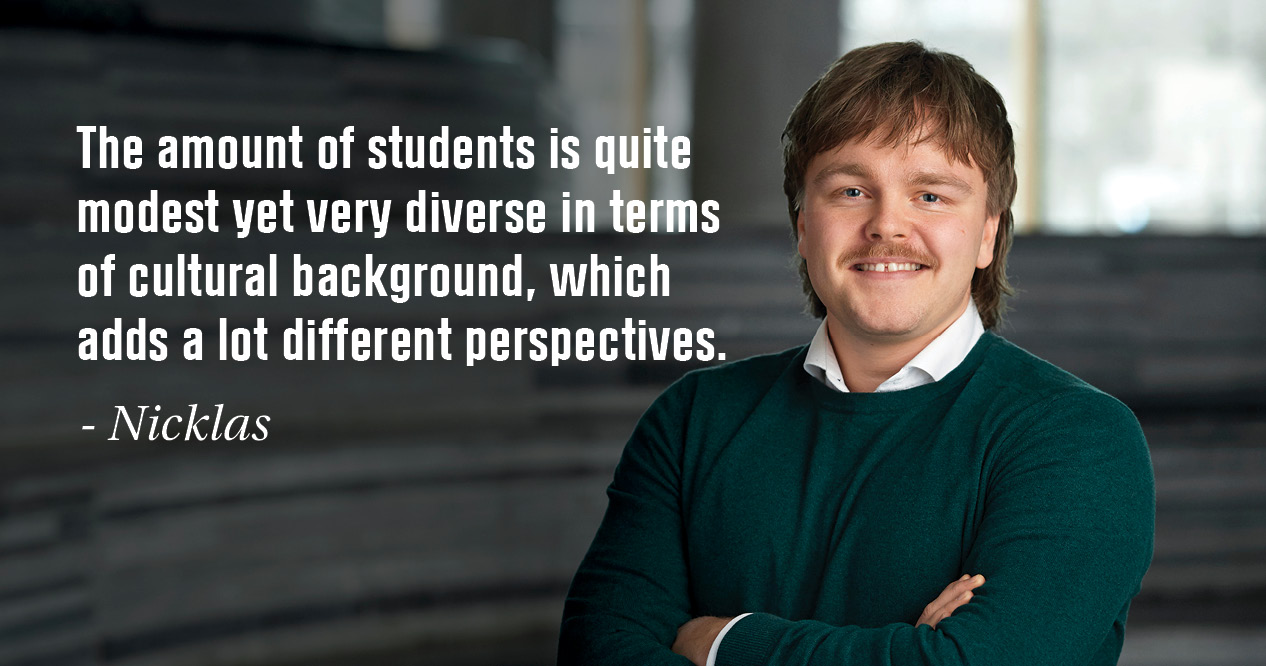André
Why did I choose my programme (and CBS)?
For my master’s, I wanted to move away from business administration in the traditional sense and go more into development studies. The BADS programme is very unique in the sense that it specifically caters to those students. For most development master’s you will also need a bachelor’s in that area. I also wanted to move abroad for my master’s, as I believe there is no easier point in life to try to live somewhere else. CBS was a natural choice for me, as it’s quite renowned, it focuses on sustainability, and studying there is completely free for me.
What do I like the best?
think that would be my classmates and the general vibe in our programme. We are a pretty international programme, with only about a third of us being Danes. Everyone is super open and supportive of each other, and even though you might have different opinions in class, everyone gets along. Growing up in northern Germany, I expected everyone to maybe be a little cold and distant (which is often said that Danes are), however, that's not the truth. My classmates (including the Danes) are fun to be around and open, and we regularly meet outside class.
How do I experience the difference in academic level between my bachelor and master programme?
The academic level definitely increased quite a lot! During my bachelor’s, I used to study very little throughout the semester and have stressful exam periods, which is not really possible for me anymore. The amount of readings you need to do is a lot, so I spend a lot of time reading up on papers and books in the library. In general, I feel like the level of teaching is very high, but not hard to follow if you're prepared for the class. The professors are also very supportive and eager to help you if you have any questions.

What are the biggest challenges in my programme?
I think that would be to keep a healthy work-life balance. Between classes, readings and working two days a week, I sometimes get pretty stressed out. I really liked the structure of my first semester in that regard, as it was split in the middle, so we had two exam periods. While the workload was similar, that really helped me be able to focus on specific topics and get used to the study climate at CBS. I also got to know some classmates to share the readings with, so I didn't have to read everything on my own.
What would I have liked to have known before starting my programme?
First, that there is a restriction on how many ECTS you are allowed to do. I come from Germany where it’s possible to visit as many extra classes as you want, which is not a thing in Denmark. Therefore, you need decide quite early on how you want to use your limited ECTS, for example, for semesters abroad, internships, etc.
Second, what the teaching culture is like in Denmark. You talk to professors on a first-name basis, and they are very nice and approachable. Coming from Germany, that is still something I'm getting used to.
What do I want to do after finishing my programme?
I am currently still considering if I want to start working or pursue a PhD after finishing my programme. However, both options are related to the field of development. If I start working, I would like it to be either directly in fieldwork or at development institute, NGO or in development consulting. I grew up speaking Spanish, so I would like to do something related to Latin America, but I am pretty open in regards to location.
If I could give myself a piece of advice, before starting it would be…
Don't stress out too much – first, in regards to moving abroad, and, second, when it comes to oral exams.
Moving to Denmark was actually quite easy, and I’m still amazed at how efficient and digitalized the Danish bureaucracy is. They really make it easy for you, and we got a lot of information in our opening week at CBS.
I didn't have to do any oral exams in my bachelor’s, so I was a little unfamiliar with what they were going to be like. The teachers are super nice though, the atmosphere is cozy, and it is definitely possible to get good grades.
